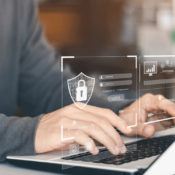What Are the Top 5 Cybersecurity Concerns an Individual Should Have?

In recent days, the news has been full of stories about large corporations falling victim to cybercrime. And while this is a real issue, you should be aware that it is not just big organizations that are at risk of attack.
“Individuals are also frequently the target of cybercriminals,” said Doug Hogue, VP of Business Development from Cloud Solutions, a division of the Eric Ryan Corporation. “Many people turn a blind eye to at-home cybersecurity and assume only large businesses need to worry. We want to caution everyone against this and offer some tips for individuals seeking to secure themselves from online threats.”
Keep reading to learn about five manners in which unaware Internet users might encounter cybersecurity threats, as suggested by the experts at Cloud Solutions:
- Malware, which is short for malicious software, is a category that includes spyware, ransomware, viruses, and worms. Hackers seek to install these types of programs on computers via links or emails sent out to unsuspecting targets. Once installed, the malware can cause damage in a variety of manners, such as blocking access or gathering confidential information.
- Ransomware fits into the category above but deserves some more attention. With ransomware attacks, cybercriminals lock or encrypt the victim’s data. They threaten to either permanently block the data or make it public unless the target capitulates to their ransom demands.
- Social engineering refers to when cybercriminals use manipulation of human psychology to achieve their aims. The most common type of social engineering attack is phishing, which is when hackers send emails posing as a legitimate source in order to trick the target into downloading malware or disclosing sensitive information. A related term, “spear phishing,” refers to phishing attacks that are targeted exclusively at privileged users (e.g., system administrators or C-level executives).
- Denial of services attacks make systems inoperable by flooding them with massive amounts of traffic. These attacks often incorporate the use of multiple infected devices, often without the knowledge of the device owners.
- Attacks on cloud computing systems are common due to the unique vulnerabilities that these systems hold. Hackers seek out unsecured Cloud servers, then exploit them by planting ransomware, stealing sensitive data, using the systems for crypto jacking, and/or recruiting the systems into their DDoS attacks.
When it comes to staying safe and secure online, knowledge about the tactics of hackers is of great importance. The ability to recognize attacks before they are successful will go a long way in keeping your devices and your information out of the hands of cybercriminals.
Interested in learning more? Please contact us with any questions.




